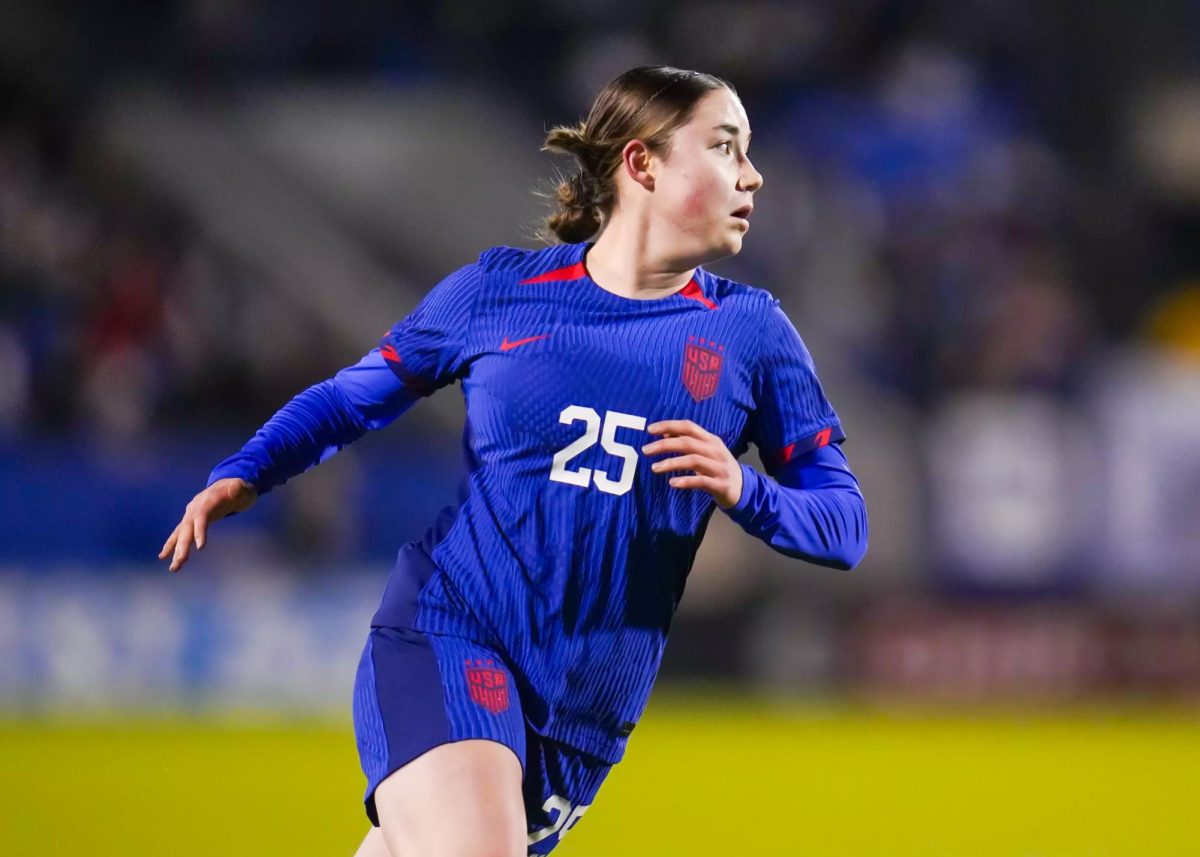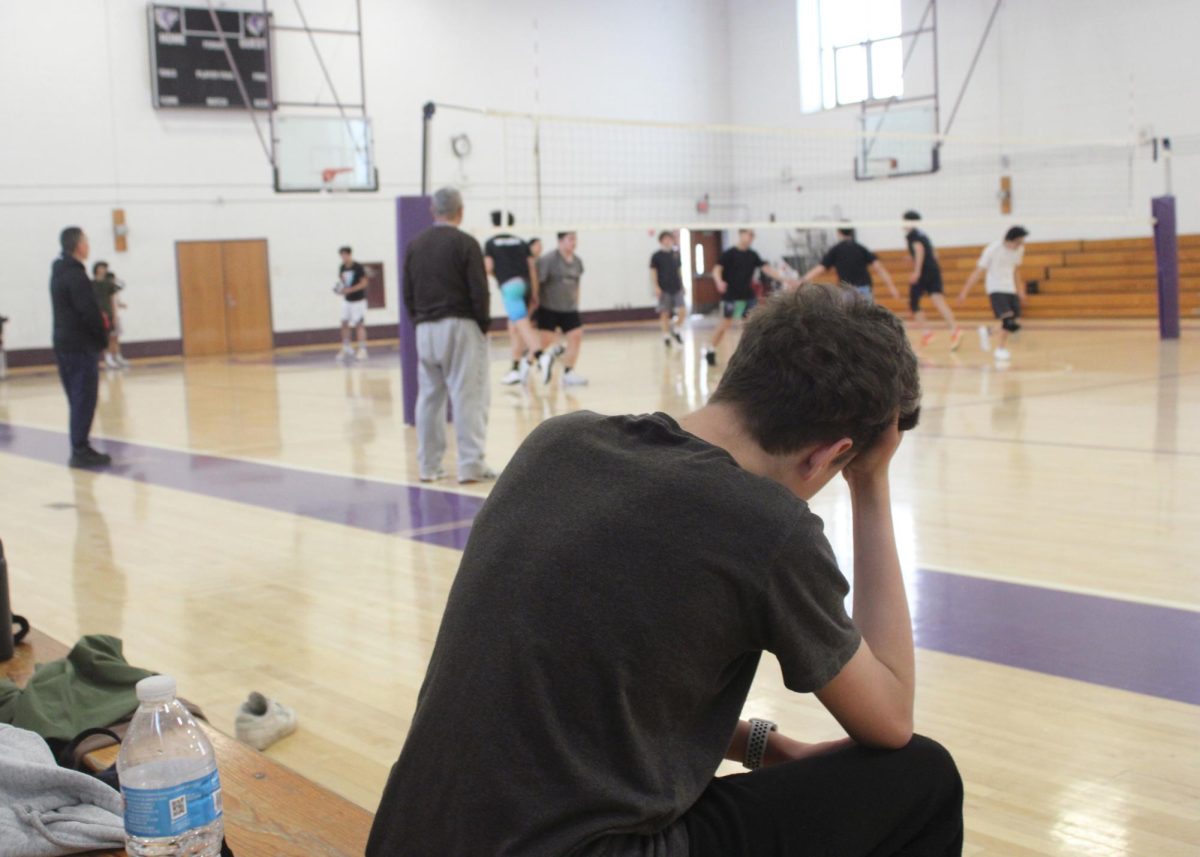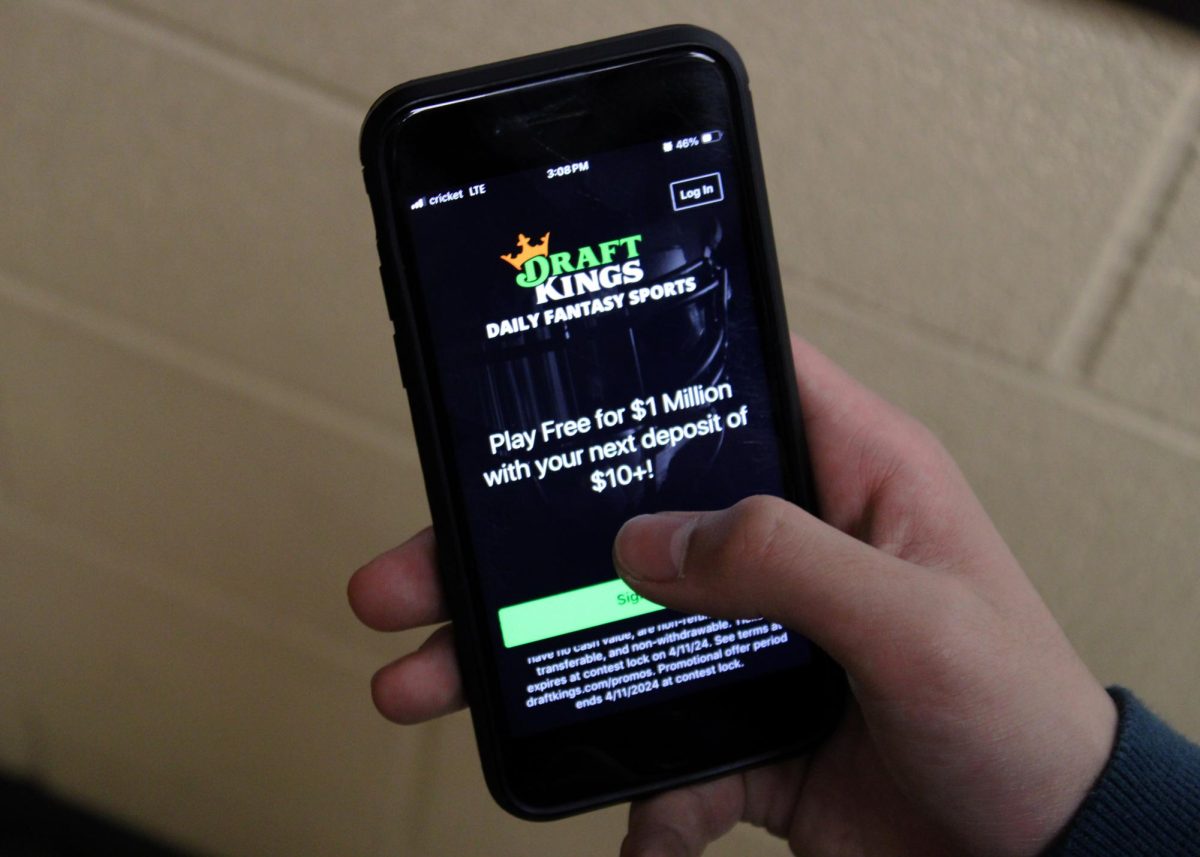Athletes in professional women’s sports are getting increasingly younger as female competitors as young as 16 take the big stage in the National Women’s Soccer League (NWSL). Following a lawsuit filed by 15-year-old Portland Thorns player Olivia Moultrie in 2021, female players under 18 are now able to play in the professional league.
Moultrie began practicing with the Thorns at just 13, but felt her career was hindered by her inability to play matches until she turned 18. She then sued the NWSL, claiming that if a player is good enough to be competitive, then they are old enough to play. The case was heard in May of 2021 and Moultrie came out victorious, officially signing with Portland Thorns just a few months later. After that lawsuit, questions still remain about whether it was a good idea to lift the age restrictions for young players.
The removal of the age restriction law quickly created a ripple effect of younger players signing with the professional league. Prior to the removal of the law, only a couple of teenagers had gotten minutes in games. This past season, however, after the change of rules, a total of seven players between the ages of 15 to 19 got play time, showing a significant increase in the amount of young players playing professionally.
Most notable of these young athletes is Alyssa Thompson, the No. 1 draft pick for the NWSL in 2023, who played for the United States Women’s National Team (USWNT) at the World Cup all while still being in highschool. Thompson is a perfect example of the talent of young players as well as the immense impact that playing professionally has on a young player’s life and childhood. Going back and forth between the spotlight of professional soccer and her regular school life posed a real challenge for Thompson. For example, she had to miss both her high school graduation and prom for Angel City games. She, nevertheless, made those sacrifices readily and her team and family supported her the whole way through it.
Natalia Troy (I), a Boston Latin School girls’ varsity soccer player, reflects on the benefits and drawbacks of going professional at a young age, saying, “Overall it can be a great experience, but it takes up the majority of your time and makes it difficult to follow other passions.” Female athletes of Troy’s age understand the pros and cons of going professional, enough to make an educated decision for their future. Female athletes are not more naive than their male counterparts and should be trusted to make their own informed decisions, just as young male athletes are, for the future.
Jon Rudzinski, the BLS girls’ varsity soccer coach, agrees that going professional at an early age can take a toll on a player’s life as a young person. “I think that those young athletes typically pay a cost to get to that level — even if that is merely the loss of what is considered a normal childhood,” he states. Overall, going professional at an early age can cause a player to miss out on a “normal” life as a young person, especially for players as young as Alyssa Thompson.
There is certainly a biological standpoint as well: does it make a difference to have a younger body when playing on these professional teams? According to BLS biology teacher Ms. Jennifer Dorcy, it does. “[Young athletes] recover from tough practices or injuries faster than older players. Plus, many teens are close to their strongest and fastest,” Ms. Dorcy describes. “On the flip side, their bodies might not be fully grown, making them more likely to get hurt.” Just like a young player’s mental health, their physical health is both a benefit and a burden; they are faster and more agile, but are at higher risk to endure stress fractures and overuse injuries.
After the removal of the age restriction laws, it is clear that young athletes experience both benefits and drawbacks in their emotional and physical health. As a young person, they are able to use their strength, speed and agility to give their team an advantage, but are at a higher risk for overuse. While they are potentially missing out on experiencing a more typical childhood, they are able to fulfill their dreams earlier and can express their passions in their sport from a younger age.
Additionally, there is no doubt that young players have made significant positive impacts on the NWSL and women’s soccer as a whole. In the end, the decision to go professional at an early age should be up to the player and their families, as it is a personal decision that has significant impacts on their lives.








